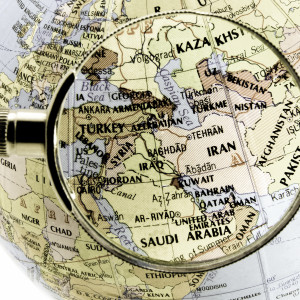While the Persian Gulf may seem like an attractive place for U.S. investors, recent actions by high-ranking officials in Kuwait and Dubai reveal continued risks for foreigners — especially women — looking to do business in the region. Dubai’s freezing of a half-billion dollars in international investment and Kuwait’s illegal imprisonment of a prominent foreign businesswoman demonstrate the ways powerful individuals exploit the system for their own financial advantage.
Kuwait’s arrest and sustained detention of CEO Marsha Lazareva have reverberated throughout the global investment community. Lazareva is well known for her investment prowess. Her ability to succeed in a foreign, male-dominated culture was unlikely in the extreme.
A Wharton graduate, Lazareva identified opportunities in Kuwait and moved there on her own 13 years ago. She decoded Kuwait’s business landscape and began making deals. She had soon built an investment firm and was securing significant returns for her investors.
After successfully completing a $500 million real estate development deal in the Philippines named after the Kuwaiti Amir himself, she was arrested by Kuwaiti authorities on specious charges, the specifics of which changed significantly over time. The proceeds from the Philippines project were frozen by Emirati officials when wired to company’s account at Noor Bank in Dubai last November and remain frozen at the request of Kuwaiti officials.
The ensuing trial was merely for show. Lazareva was barred from calling any witnesses and denied access to exculpatory documents. She was even prohibited from attending a number of key hearings. At one point she felt ill and was denied access to the bathroom. “Let her go to the corner and be sick,” the judge said.
Today, she sits in Sulaibiya prison serving a sentence of 10 years’ hard labor.
Sidelining successful competitors by having them charged with a criminal act is an all-too-often business strategy in Kuwait. One foreign official told a representative of Lazareva’s company that “interested parties” plan to use her conviction as an opportunity to steal and divide the money.
By targeting Lazareva, a message was sent to those who aspire to power or influence in the Gulf. It also set a limit to how far a woman can climb before being torn down. Unfortunately for those intent on clinging to this system, the campaign against Lazareva was waged at a time when women around the world are refusing to be silenced or sidelined. The year she was arrested, 2017, was the year the Fortune 500 reported a record number of female CEOs and the year the #MeToo movement surged to demand full accountability from men who leveraged their power to prey on female professionals.
These forces have converged to support Lazareva, propelling her case to a high-level international controversy. Current and former government officials in the United States and the United Kingdom have lodged complaints with the Kuwaiti Amir and other high-ranking government officials. Lazareva’s lawyers have filed denial-of-justice proceedings against Kuwait, serious charges that carry a damning air Kuwait has so far avoided.
This sordid affair has cast a shadow over the Kuwaiti Amir’s message to President Trump and the business community. During his visit in September, the Amir claimed to seek a “strategic relationship” and “permanent partnership” with U.S. companies for infrastructure projects — the same types of projects in which Lazareva had invested.
As U.S. officials began looking into Lazareva’s case, Kuwait and Dubai blamed each other. Both countries benefit from a stalemate. Kuwait claims Lazareva cannot repay investors, which include members of the Kuwaiti government, because she stole the money. That charge fails if the money is released because she will be able to distribute the net profits to those investors.
Noor Bank, which has struggled financially according to some reports, benefits by holding the $500 million. The ruler of Dubai, Mohammed bin Rashid, is the largest single shareholder in Noor Bank. Kuwait, however, reportedly has recently requested that Dubai unfreeze the funds and send them directly to its coffers, which would amount to an illegal expropriation of these funds.
Thanks to Trump’s 2017 Executive Order blocking the property of people involved in human rights abuse or corruption, Lazareva has an opportunity for recourse. Under that order, the Treasury Department’s Global Magnitsky Regulations can authorize sanctions on government officials for complicity in expropriating private assets for personal gain.
A decisive move by the United States on Lazareva’s behalf would send an important message that the U.S. will not tolerate the seizure of privately earned funds or the failure to ensure due process in countries that receive major international investments. Lazareva’s release would be a rare triumph for women’s rights in the Gulf, where an obstinate power structure continues to exclude women from major societal changes.

